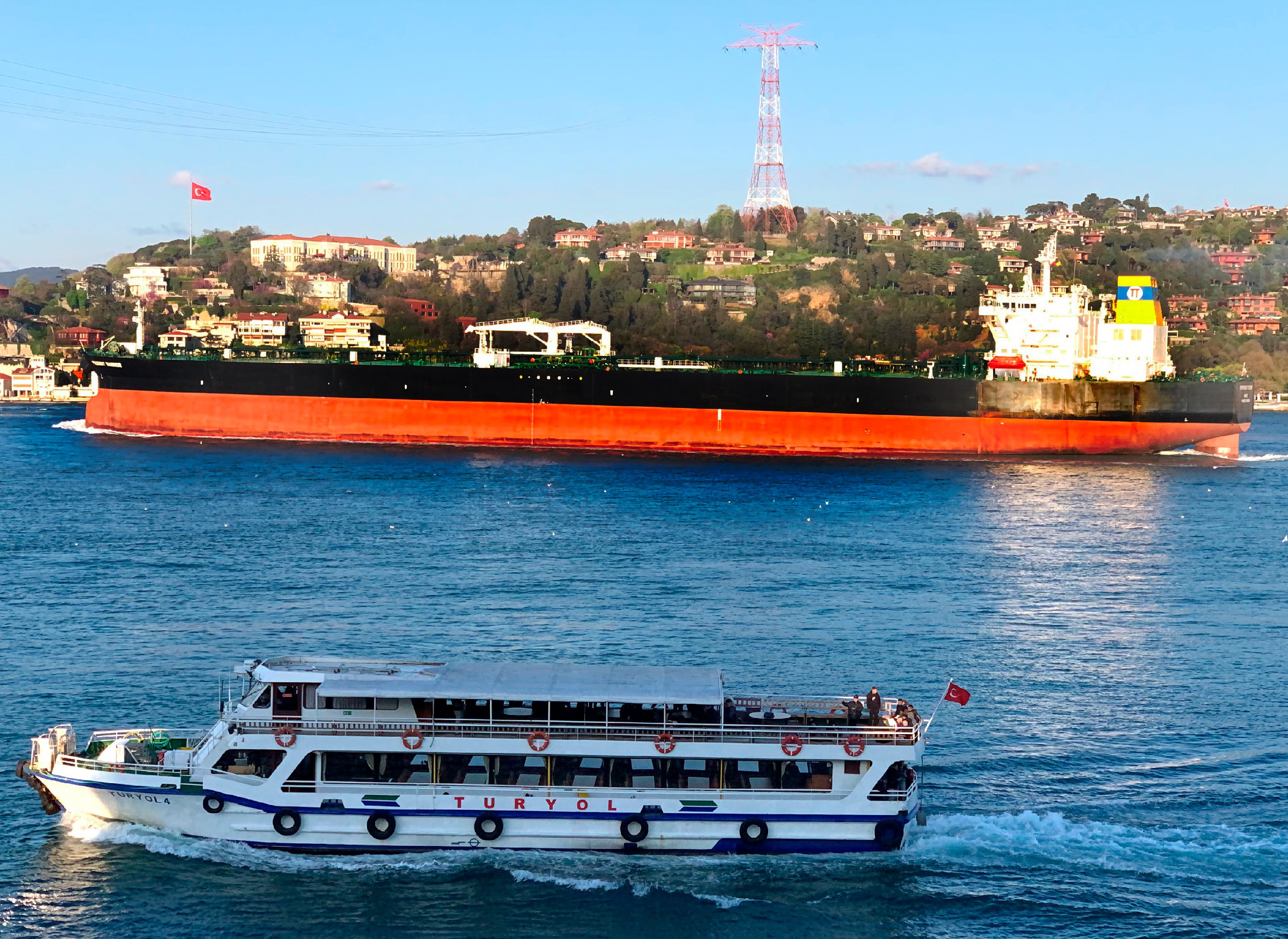Iran seizes 2 Greek tankers in Persian Gulf as tensions rise
Iran’s paramilitary Revolutionary Guard says it has seized two Greek oil tankers in the Persian Gulf

Your support helps us to tell the story
From reproductive rights to climate change to Big Tech, The Independent is on the ground when the story is developing. Whether it's investigating the financials of Elon Musk's pro-Trump PAC or producing our latest documentary, 'The A Word', which shines a light on the American women fighting for reproductive rights, we know how important it is to parse out the facts from the messaging.
At such a critical moment in US history, we need reporters on the ground. Your donation allows us to keep sending journalists to speak to both sides of the story.
The Independent is trusted by Americans across the entire political spectrum. And unlike many other quality news outlets, we choose not to lock Americans out of our reporting and analysis with paywalls. We believe quality journalism should be available to everyone, paid for by those who can afford it.
Your support makes all the difference.Iran's paramilitary Revolutionary Guard seized two Greek oil tankers Friday in helicopter-launched raids in the Persian Gulf, officials said. The action appeared to be retaliation for Athens' assistance in the U.S. seizure of crude oil from an Iranian-flagged tanker this week in the Mediterranean Sea over violating Washington's crushing sanctions on the Islamic Republic.
The raid marks the first major incident at sea in months as tensions remain high between Iran and the West over its tattered nuclear deal with world powers. As Tehran enriches more uranium, closer to weapons-grade levels than ever before, worries mount that negotiators won't find a way back to the accord — raising the risk of a wider war.
The Guard issued a statement announcing the seizures, accusing the tankers of unspecified violations.
Greece's Foreign Ministry said it made a strong demarche to the Iranian ambassador in Athens over the “violent taking over of two Greek-flagged ships” in the Persian Gulf. “These acts effectively amount to acts of piracy,” a ministry statement said.
The ministry called for the immediate release of the vessels and their crews, and said these acts would have “particularly negative consequences” in bilateral relations and in Iran’s relations with the European Union, of which Greece is a member.
The ministry's statement said that earlier Friday, an Iranian helicopter landed on the Greek-flagged Delta Poseidon in international waters, some 22 nautical miles off the coast of Iran.
“Armed men then took the crew captive,” it said, adding that two Greek nationals were among the crew.
“A similar incident has been reported on another Greek-flagged vessel, that was carrying seven Greek citizens, close to the coast of Iran,” the ministry said.
A Greek official, speaking on condition of anonymity to discuss details of the attack with a journalist, identified the second ship as the Prudent Warrior. Its manager, Polembros Shipping in Greece, earlier said the company was “cooperating with the authorities and making every possible effort to address the situation effectively.”
Greek officials did not identify the nationalities of the other crew onboard the vessels.
Both vessels had come from Iraq's Basra oil terminal, likely loaded with crude, according to tracking data from MarineTraffic.com.
A U.S. defense official, speaking on condition of anonymity to discuss intelligence matters, said it appeared the two ships had come close to — but not into — Iranian territorial waters Friday. After the hijacking, they drifted into Iranian waters. The ships also had turned off their tracking devices, another red flag, the official said. However, neither had issued a mayday or a call for help, the official said.
Iran had threatened to take “punitive action” earlier Friday over Athens being involved in the U.S. seizure of an Iranian oil tanker in Greek waters.
Nour News, a website close to Iran’s Supreme National Security Council, made the threat just as shipping news site Lloyd's List said it believed two Greek tankers had been seized in the Persian Gulf. Quoting anonymous industry sources, Lloyd's reported that the two ships had been boarded after Iranian military helicopters approached them on Friday afternoon.
The seizures came after Greece helped the U.S. seize crude oil aboard an Iranian-flagged tanker this week.
A Greek official said Thursday the move followed a “judicial intervention by U.S. authorities concerning the ship’s cargo.” The oil was “to be handed over” off the port of Karystos on the Aegean Sea island of Evia.
The official, who asked not to be identified in order to discuss the case, did not provide further details. A Justice Department spokesman in Washington and the U.S. Embassy in Athens declined to comment Thursday.
Iran’s seizure on Friday was the latest in a string of hijackings and explosions to roil a region that includes the Strait of Hormuz, the narrow mouth of the Persian Gulf through which a fifth of all traded oil passes.
The U.S. Navy blamed Iran for a series of limpet mine attacks on vessels that damaged tankers in 2019, as well as for a fatal drone attack on an Israeli-linked oil tanker that killed two European crew members in 2021.
Iranian hijackers also stormed and briefly captured a Panama-flagged asphalt tanker off the United Arab Emirates last year, as well as briefly seizing and holding a Vietnamese tanker in November.
Tehran denies carrying out the attacks, but a wider shadow war between Iran and the West has played out in the region’s volatile waters. Meanwhile, the Guard is building a massive new support ship near the strategic Strait of Hormuz as it tries to expand its naval presence in waters vital to international energy supplies and beyond, according to satellite photos obtained by The Associated Press.
___
Paphitis reported from Athens, Greece. Associated Press writer Amir Vahdat in Tehran, Iran, contributed to this report.